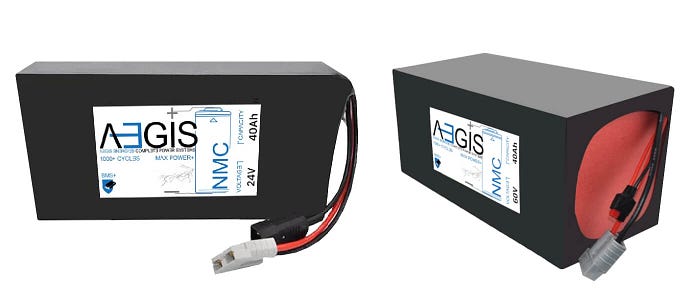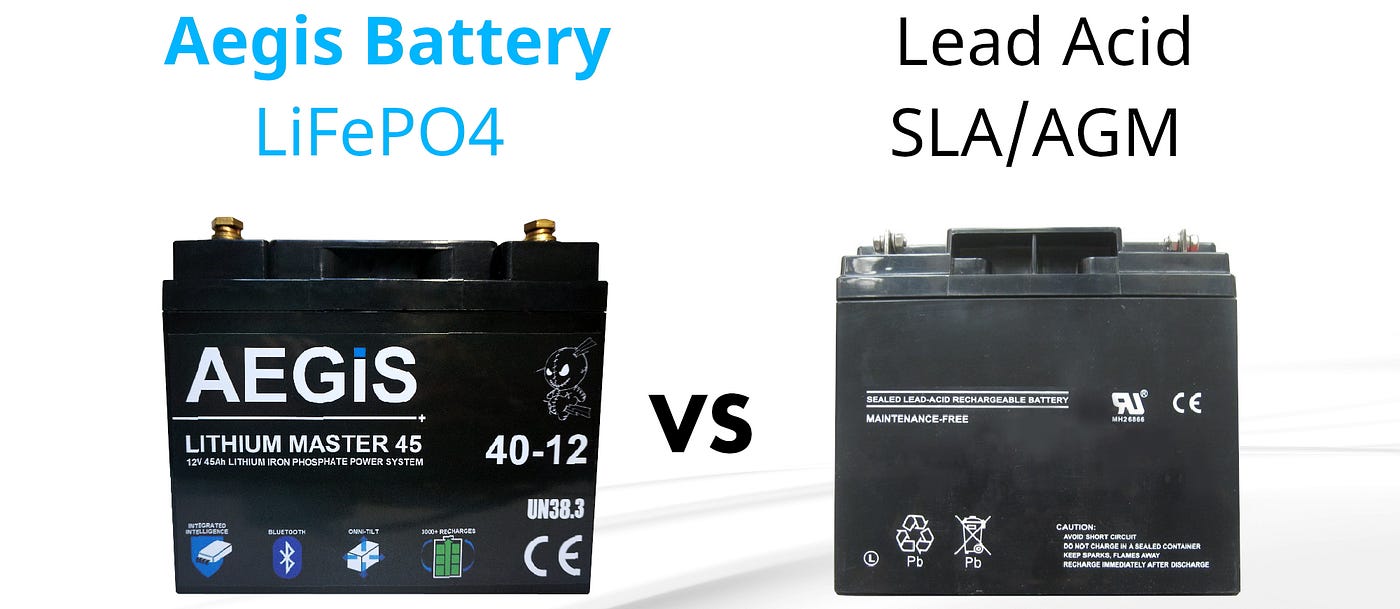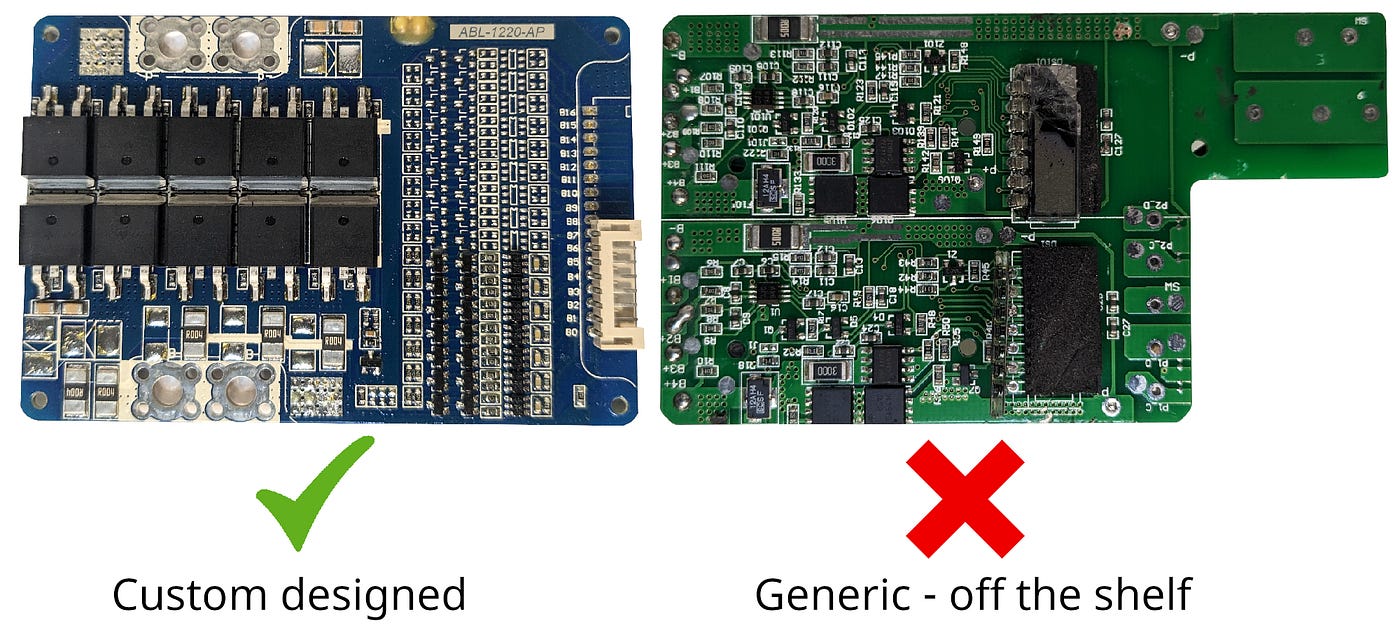Mobility Scooter Battery Replacement and Upgrade to Lithium Batteries
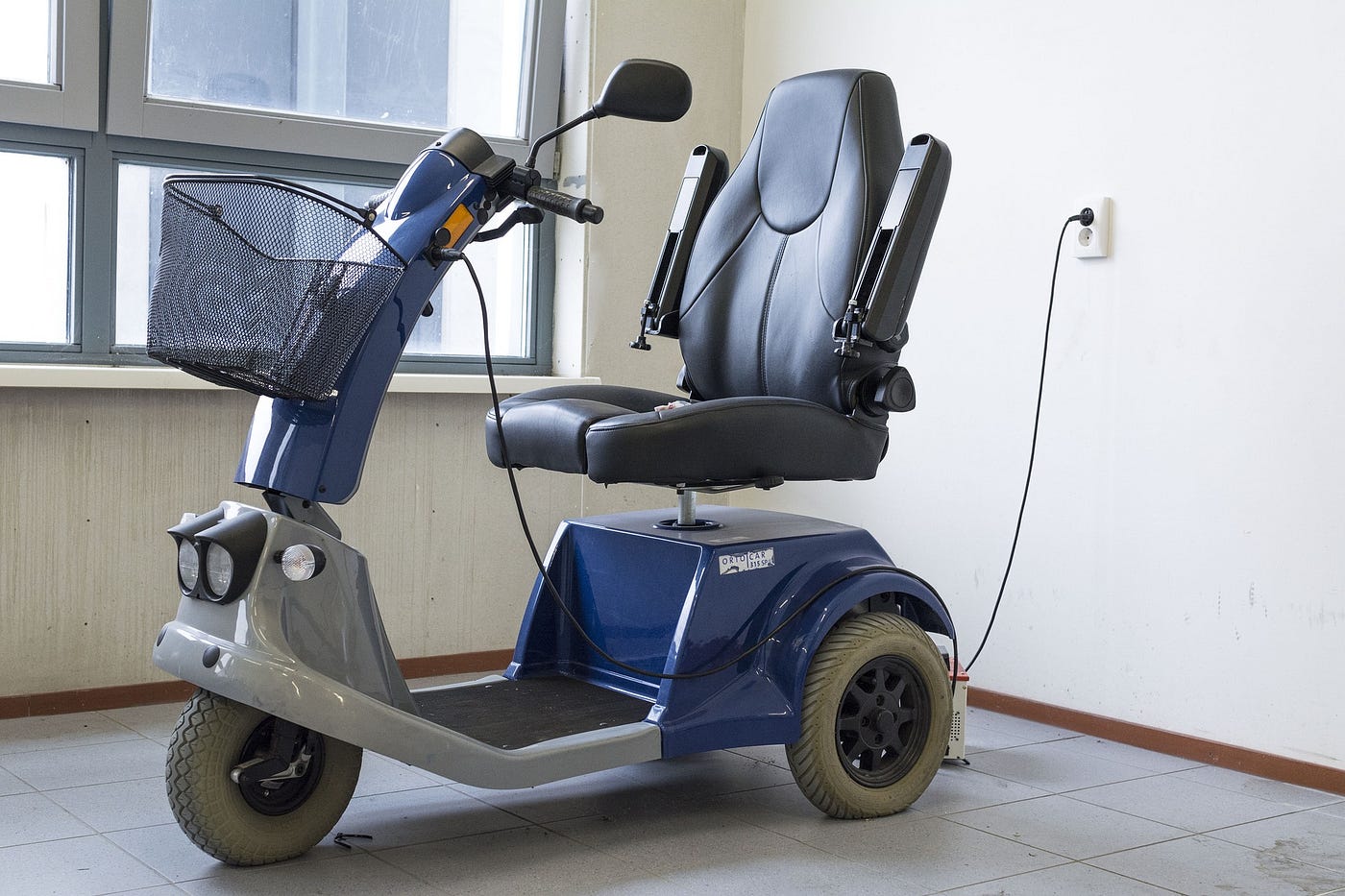
Did you know many mobility scooters still use toxic lead acid batteries? Understandably, some manufacturers continue to use lead acid batteries because they are cheap and easy to source.
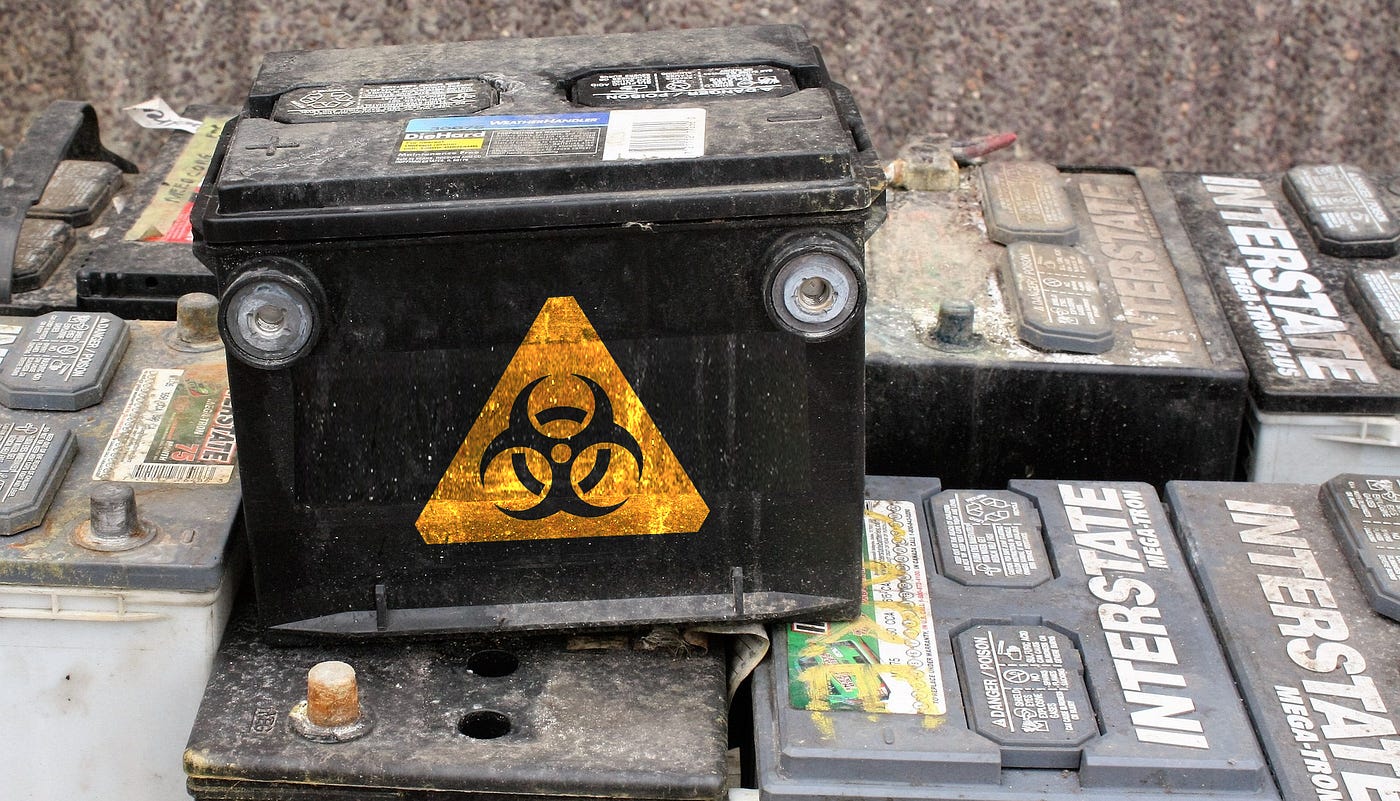
However, when you factor in that lead acid batteries often need to be replaced every 1–3 years due to low cycle life, upgrading to a more expensive lithium (LiFePO4) battery that last 10+ years and thousands of cycles makes much more sense.
Beyond the life of the battery, lithium batteries provide many advantages that benefit daily users. One of the biggest advantage is in the increased performance and capacity of lithium batteries. For the same space, one could fit a much higher capacity battery and at almost 1/2 the weight, allowing the mobility scooter to travel 50–100% further depending on the upgraded battery.
Another big advantage is in the significantly faster charging lithium batteries. Lead acid batteries often take 6–12+ hours to charge versus an average of 3–4 hours for a similar capacity lithium battery. In addition, lithium batteries can use 100% of their capacity unlike lead acid which typically can only use 30–50% of the rated capacity.
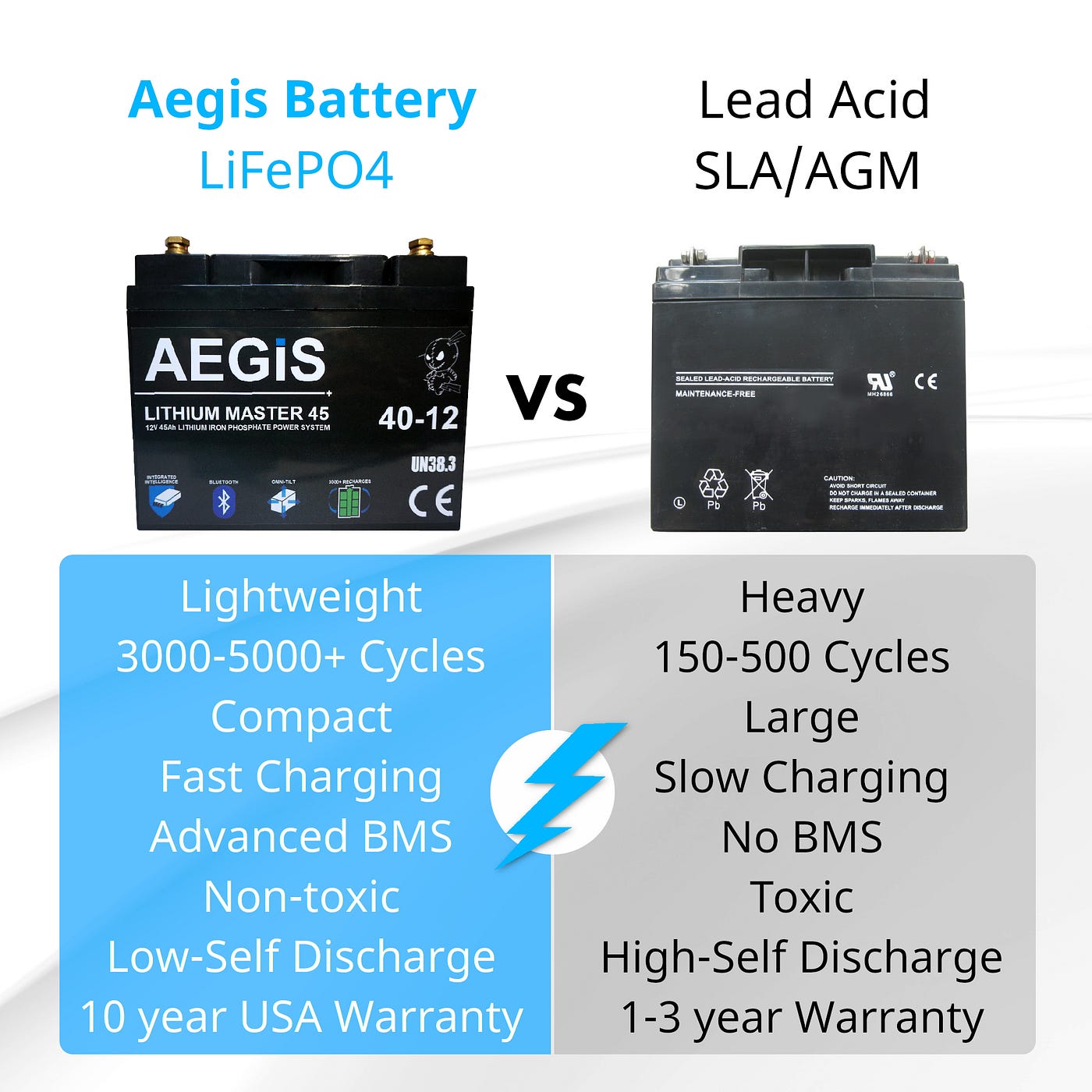
The performance difference is a clear, but also safety is a huge difference. Some lead acid batteries not only require maintenance but can also release acidic gas if charged improperly or damaged and contain toxic lead. Lithium batteries with LiFePO4 chemistry, use non-toxic materials and have extraordinary safe properties, such as being non-explosive even when punctured and high thermal limits. Lithium batteries also have no maintenance or upkeep required beyond a small partial charge if not used every 6 months.
So, why doesn’t your mobility scooter provider just offer lithium batteries? While some select scooter manufacturers are starting to offer lithium battery upgrades, some scooter models can not easily change to lithium batteries due to the battery meter and other internal electronics requirements. We do recommend contacting your mobility scooter manufacturer before attempting to upgrade your personal scooter.
If you did want to replace your mobility scooter batteries and upgrade to lithium batteries for your mobility scooter, we’ve made a quick demo video to show how to easy it is to replace your lead acid with lithium batteries.
With all the benefits lithium batteries provide, many do find the performance boost and peace of mind in terms of safety worth the initial extra cost.
If you needed any help choosing the right battery for your mobility scooter or had more questions, we are happy to assist. You can reach us anytime by email at contact@aegisbattery.com or call us 949–469–1776 during our business hours.
#mobility #mobility scooter #mobility scooter battery replacement #mobility battery #mobility scooter lithium battery replacement


